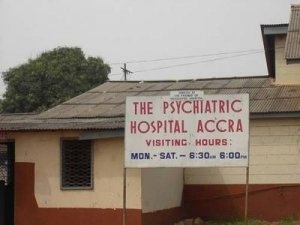Dr Angela Ofori-Atta Senior Lecturer, Department of Psychology and Vice-President of the Ghana Psychological Association, has stated that 97% mental health cases do not get the needed help.
“Per the Ghanaian population of about 25 million, only 19 psychologists and about 18 psychiatrists are working in mental health in the country,” she added.
Dr Ofori-Atta made these known at the fourth Annual Joint Conference of the departments of psychology and psychiatry, University of Ghana, last week under the theme ‘Emerging trends in Mental Health in Africa: Collaborations, Partnerships and Challenges.’
According to her, though there are other psychologists, they work in academic, adding that Ghana had only three psychiatric hospitals, which were understaffed.
She noted that though treatment for mental health is supposed to be free according to the Ghana Health Service, unavailability of medication for treatment has made this impossible.
“The government has not ordered medication for three years now,” she reiterated.
Dr Ofori- Atta stated that poverty, sexual and domestic violence, stress, biological predisposition and lack of treatment options are the top five main causes of psychological and psychiatry issues.
She advised Ghanaians to take issues of mental health seriously and seek help immediately they are faced with mental health issues.
Also up for discussion at the conference were traditional beliefs and practices of Ghanaians in the face of Ebola.
Speaking on the issue, Collins B. Agyeman, University of Ghana, stated that some cultural and religious practices could spread the disease if adjustments were not made.
In his explanation, he stated that Ghanaians shake hands at almost all social gatherings, and this must be stopped in the face of the deadly EBOLA Virus.
He said this could only be possible if psychological instruments are employed to change the perception, behaviour and attitudes of Ghanaians.
Mr Agyemang was hopeful that with intensive education on the practices that could spread the diseases, Ghanaians would be able to adjust.
The conference, which is the fourth in sequence, is held annually to pull together stakeholders to start discussions on mental health.
Though an academic exercise, it hopes to research into areas that could help with policy issues and improve mental health care in the country.
Health News of Monday, 27 October 2014
Source: The Finder

















